【Kerberos】快速入门与使用笔记
一、推导
为了尽量简化这个流程,说下简单的推导:
- 非对称的加密模式不适合集群模式,只能使用认证中心的方式,我们需要一个权威,此时是KDC
- 一切机制的目标都是保证中心的权威
- 中心负责保证client和server的身份正确,server信任KDC(废话),client信任KDC,server、client 互相不信任
- KDC保存了server密钥,server/kdc 双方知道,互相信任
- KDC保存了client密钥,client/kdc 双方知道,互相信任
- client 找KDC 要票,kdc 用client的密钥加密发了个session key 回去,同时还有client看不懂的,server信息,这部分用server的加密,server才能解开。
- client 解开信息,自己记下session key ,用session key 加密一段话,把这个和看不懂的扔给server
- server通过自己的密钥解开client的票,看到了自己的信息,于是信任client(client 解不开),同时获取到一个session key ,这个key用来解开client说的话
- client 收到 server的回复(这个回复是client之前用session key 加密过的那段话),信任server
- 10.整个过程中,client/server都不知道对方的任何秘密,唯一往来是那句回复。
二、简化的流程
下图表示简化的Kerberos流程:
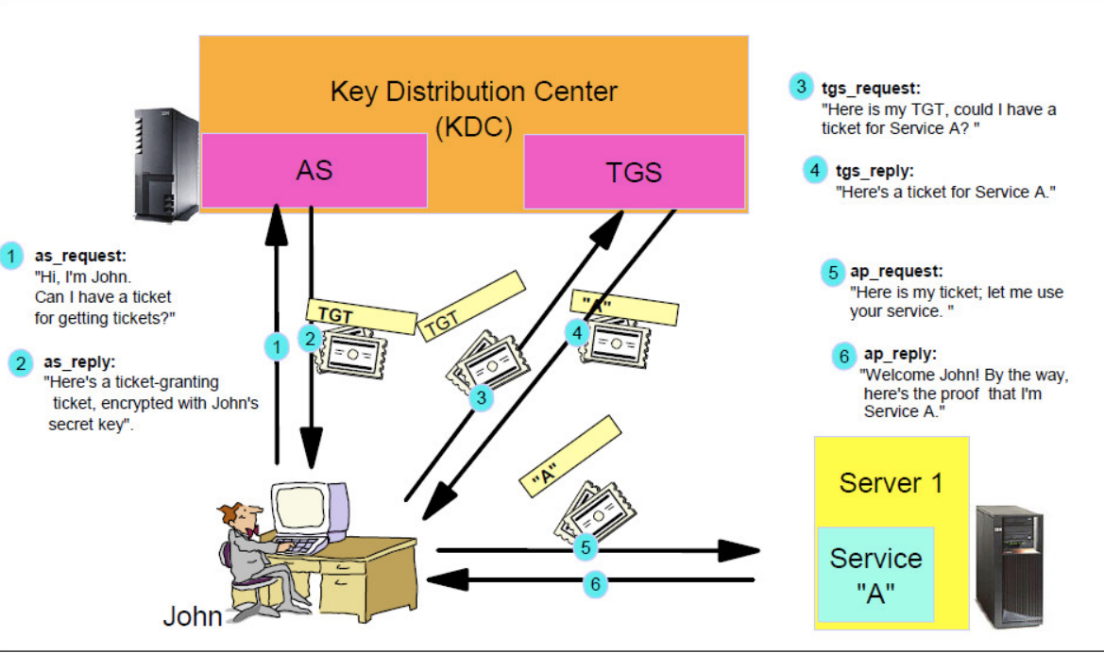
以下表示实际获取的凭证等:
1.允许服务票证
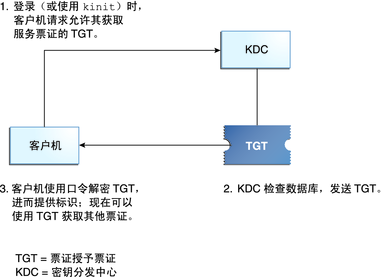
Kerberos ticket具有lifetime,超过此时间则ticket就会过期,需要重新申请或renew
ticket_lifetime: tiket有效期
renew_lifetime: 通过renew操作最长可续命的时间
2.允许服务器请求票证

这一步的TGT又称ST(Service Ticke 、ST)
三、衍生:Delegation token.
为了减轻KDC的压力,毕竟每次服务器请求,都需要服务器票证,而服务器票证一般有效期为数分钟,在大集群高访问量情况下,每分钟上万的kdc请求也有可能。
所以Hadoop Security在做这方面优化时,引入了delegation token 的机制。通过这一步认证,我们得以在大多数时候跳过上述的步骤,在认证完成后,使用token进行client/server双方的访问,而token也引入了自己的有效期,。
Delegation Tokens作为Kerberos的一个补充,实现了一种轻量级的认证机制。Kerberos是三方认证协议,而Delegation Tokens只涉及到两方。
Delegation Tokens的认证过程如下:
- client通过Kerberos与Server完成认证(TGT 认证通过),并从server获取相应的Delegation Tokens。
- client与server之间后续的认证都是通过Delegation Tokens,而不通过Kerberos。
-->注意!此时client/server并不代指提交程序和YARN,仅是通过Kerberos认证的客户端/服务器双方。
client可以把Delegation Tokens传递给其它的服务(如:YARN),如此一来,这些服务(如:MapReduce任务)以client身份进行认证。换句话说,client可以将身份凭证"委托"给这些服务。Delegation Tokens有一个过期时间的概念,需要周期性的更新以保证其有效性。但是,它也不能无限制的更新,这由最大生命周期控制。此外,在Delegation Token过期前也被取消。
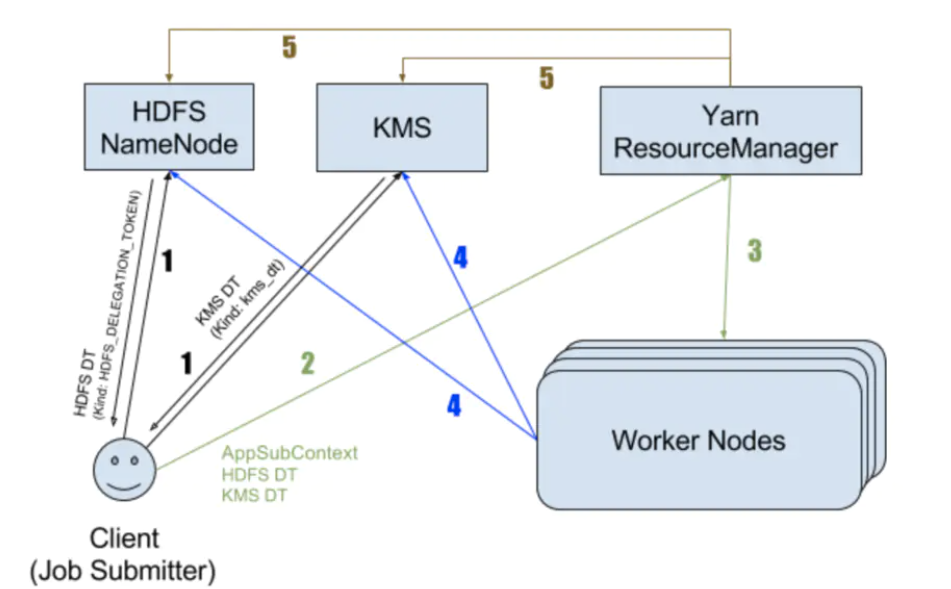
各种组件的token更新周期如hdfs的更新周期dfs.namenode.delegation.token.renew-interval默认为1天,hbase的token更新周期hbase.auth.key.update.interval默认为1天;调度更新的周期为如上各组件最小值的75%,
(一)Spark delegation token.
如上文:既然token自身存在有效期的问题,就必然有token过期的问题,对于Spark-Streaming 和 Hbase而言,这种情况变得不可接受;
spark应对这种情况时,在token即将过期时,并不指望server端(HDFS)能够继续更新token(在token自身生命周期到期以前,它一直能这么干,只是现在spark干脆连token的renew也不要了,一视同仁),因为用户程序也无法重新提交,于是只能再次认证:
- spark 通过Kerberos与 hdfs 完成认证(TGT 认证重新登录),并从 hdfs 获取相应的Delegation Tokens。
- spark 与 hdfs 之间后续的认证都是通过Delegation Tokens,而不通过Kerberos。
为了避免renew的周期和ticket的周期错开,spark 每次在token快过期时,都重新登录(不renew TGT),用新的TGT,生成新的token。
以下 摘自源码注释:
// HACK:
// HDFS will not issue new delegation tokens, if the Credentials object
// passed in already has tokens for that FS even if the tokens are expired (it really only
// checks if there are tokens for the service, and not if they are valid).
// So the only real
// way to get new tokens is to make sure a different Credentials object is used each time to
// get new tokens and then the new tokens are copied over the the current user's Credentials.
// So:
// - we login as a different user and get the UGI
// - use that UGI to get the tokens (see doAs block below)
// - copy the tokens over to the current user's credentials (this will overwrite the tokens
// in the current user's Credentials object for this FS).
// The login to KDC happens each time new tokens are required, but this is rare enough to not
// have to worry about (like once every day or so). This makes this code clearer than having
// to login and then relogin every time (the HDFS API may not relogin since we don't use this
// UGI directly for HDFS communication.
(二)Driver 和 Executor
在yarn-client模式下,driver在yarnclient进程中启动,同样需要访问业务层及集群的相关组件如hdfs。
driver通过读取am更新在hdfs路径下的credentials文件来保证driver节点的token有效。
// SPARK-8851: In yarn-client mode, the AM still does the credentials refresh. The driver
// reads the credentials from HDFS, just like the executors and updates its own credentials cache.
if (conf.contains("spark.yarn.credentials.file")) {
YarnSparkHadoopUtil.startCredentialUpdater(conf)}
在applicationMaster中,定期更新token,并写入文件到hdfs的相关目录,并清理旧文件以供各executor使用。
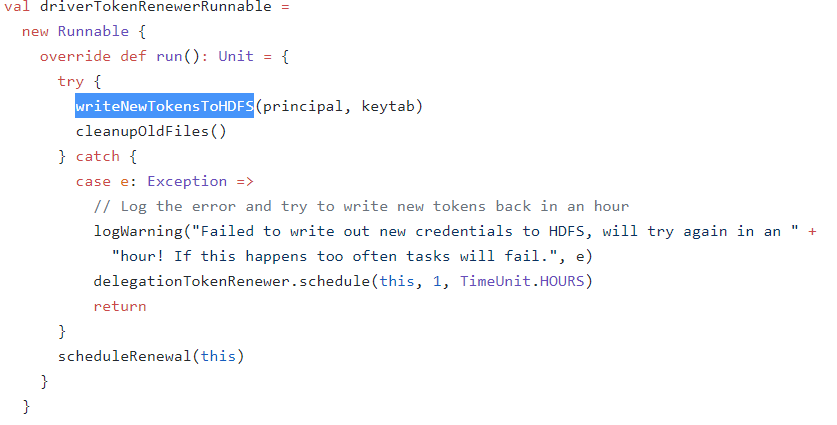
client 模式由于其特殊性,可以视作特殊的executor,毕竟 applicationMaster 在yarn上。
在yarn-cluster模式下,driver运行在applicationMaster的JVM中,其安全相关由Am同一操作
(三)UGI
代码中UGI:UserGroupInformation主要作用:
- 登录
- 启动后台线程来刷新 TGT
- 支持tgt的手动重刷
四、配置相关
领域:(Realm)是定义属于同一主 KDC 的一组系统的逻辑网络,类似于域。
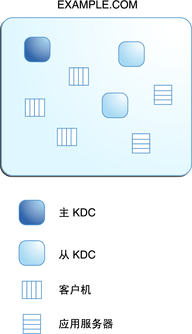
位于:krb5.conf
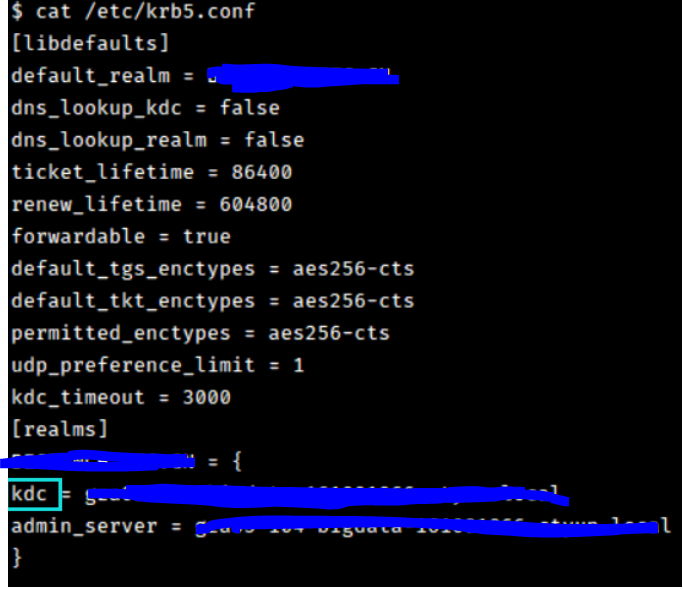
keytab文件:
keytab文件实际只是一个密码文件,显然,修改lifetime相关设置跟密码是没有关系的,不需要去重新生成现有的keytab文件。
五、对应的命令
KDC也即服务端的命令与客户端是错开的
也即krb-admin-server\krb-kdc和krb-user 几个独立包的区别(使用apt-get时)
其中:
服务端KDC由kadmind、krbkdc 两个命令组成
|
kadmind |
启动AD服务,控制权限 |
|
krbkdc |
启动KDC服务 |
安装见:
(中文简版)
https://www.jianshu.com/p/f84c3668272b
(MIT完整版)
https://web.mit.edu/kerberos/krb5-latest/doc/admin/install_kdc.html
服务端常用命令为:
|
获取ticket,也即第一步的TGT,后续交互由后台进程负责 |
|
|
默认展示已认证的tiket |
|
|
销毁所有tiket |
|
|
更改密码 |
|
|
kadmin |
生成keytab |
Linux使用任意包管理安装krb-user即可,windows在官网有安装包
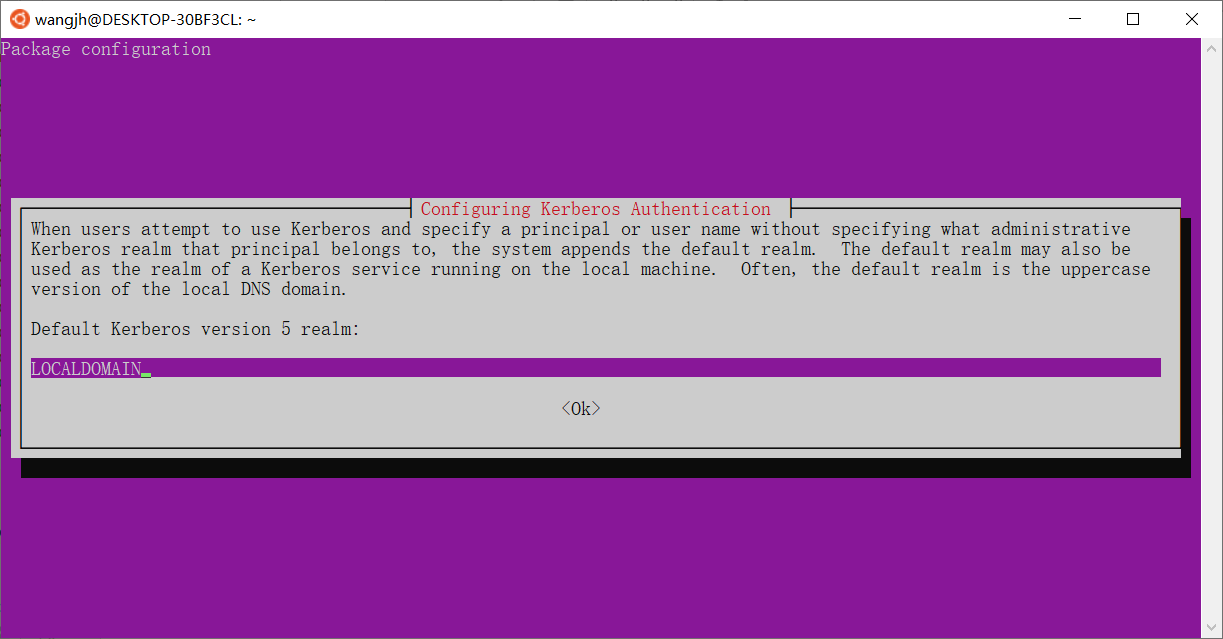
六、不同供应商的krb5
目前krb5有许多的供应商,大体上他们实现相差无几,但是仍有部分区别,主要表现在配置上,也即与KDC交互时,使用的配置
以Klist命令为例,大多数厂商都实现了这一命令,在一台机子上可能找到多个klist:
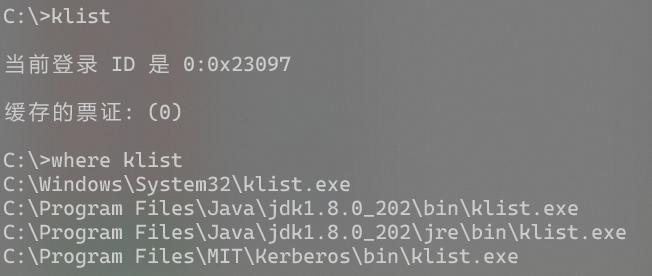
从上往下依次是
1.windows自带klist(兼容windows自身的krb5 以及Mit 的krb5):
其路径下的ksetup读取 C:\ProgramData\MIT\Kerberos5\krb5.ini 以及 C:\windows\krb5.ini
2.JVM自带,调用Java代码实现:
其路径下的kinit读取java.security.krb5.conf=/dir 设置的路径 或者 默认的 C:\windows\krb5.ini
详见Java security(JAAS)
3.MIT 为Windows提供的版本:
其路径下的kinit读取 C:\ProgramData\MIT\Kerberos5\krb5.ini
4.MIT 为Linux提供的版本及其他厂商为Linux提供的版本:
其路径下的kinit读取 /etc/krb5.conf
其中MIT版本中的许多配置厂商实现的标准是不能用的,但是不涉及。
5.SunOS
其路径下的kinit读取 /etc/krb5/krb5.conf
参考:
https://www.jianshu.com/p/ae5a3f39a9af
https://www.jianshu.com/p/7fe5351399a8




 浙公网安备 33010602011771号
浙公网安备 33010602011771号